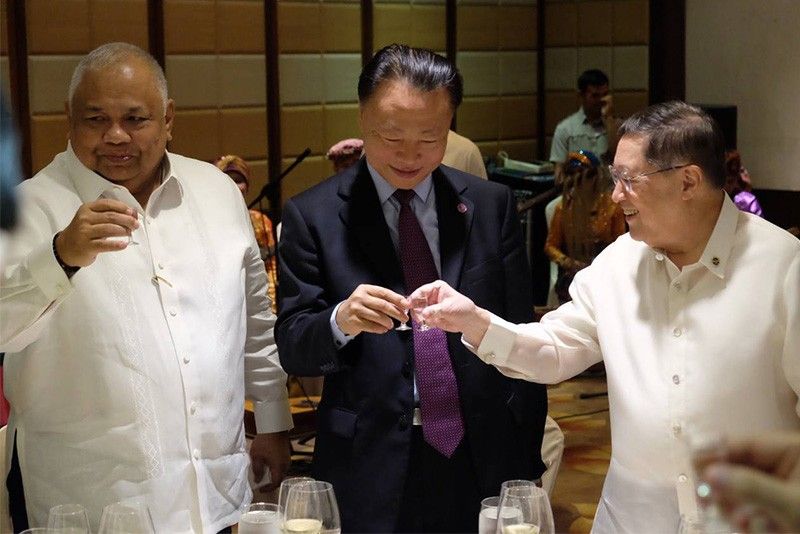Philippines, China to establish peso-renminbi spot market

MANILA, Philippines — Filipino banks and the local branch of Bank of China sealed on Tuesday an agreement that will pave the way for the creation of a peso-renminbi conversion platform in a bid to reduce the cost of doing business between the Philippines and China.
A memorandum of agreement was signed by 13 local banks and the Bank of China that would provide the provisional framework, scope and criteria for membership of the Philippine Renminbi Trading Community, or PRTC.
The PRTC will be under the direct supervision of the Bangko Sentral ng Pilipinas and will serve as the precursor leading to the launching of the peso-renminbi foreign exchange spot market.
In a speech during Tuesday’s signing ceremony, Finance Secretary Carlos Dominguez III said the agreement offers the Philippines improved access to China’s debt market, where the government plans to issue "Panda" bonds every 12 to 18 months.
Dominguez also said the PRTC will later open its doors to new members seeking to take part in the trading platform in the future.
Aside from the Manila branch of the Bank of China, the other signatories to the deal, which comprise the initial members of the PRTC are:
- Asia United Bank
- Bank of Commerce
- Bank of the Philippine Islands
- BDO Unibank Inc.
- China Banking Corp.
- East West Banking Corp.
- Metropolitan Bank and Trust Company
- Philippine Bank of Communications
- Philippine Business Bank
- Philippine National Bank
- Rizal Commercial Banking Corp.
- Security Bank Corp.
- Union Bank of the Philippines
According to Dominguez, estimates show Filipino and Chinese businessmen can save as much as 3 percent of transaction value once the direct currency trading platform is up and running.
He added that the planned currency conversion market also seeks to avoid the “friction” generated by pricing the exchange rates of the peso and renminbi in dollars, which he said slowed down trade and investments.
The Finance chief then revealed that the Philippines hopes to establish similar currency conversion arrangements with its other major trading partners, with Japan possibly the next country where a yen-peso direct conversion platform could be set up.
“We take this major step forward in the economic partnership between the Philippines and China. On both sides, there is confidence that this partnership will bring great benefits to both our peoples. This is a partnership nurtured by the warm friendship between our two countries,” Dominguez said.
Ties between the Philippines and China have significantly improved under President Rodrigo Duterte, who has set aside a ruling from a United Nations-backed tribunal that invalidated Beijing’s claim to sovereignty over most of the South China Sea.
But despite Duterte's warm relations with China, the Philippines has a long history of mistrust of it as the two countries continue to spar over the resource-rich waters. — Ian Nicolas Cigaral
- Latest
- Trending






















